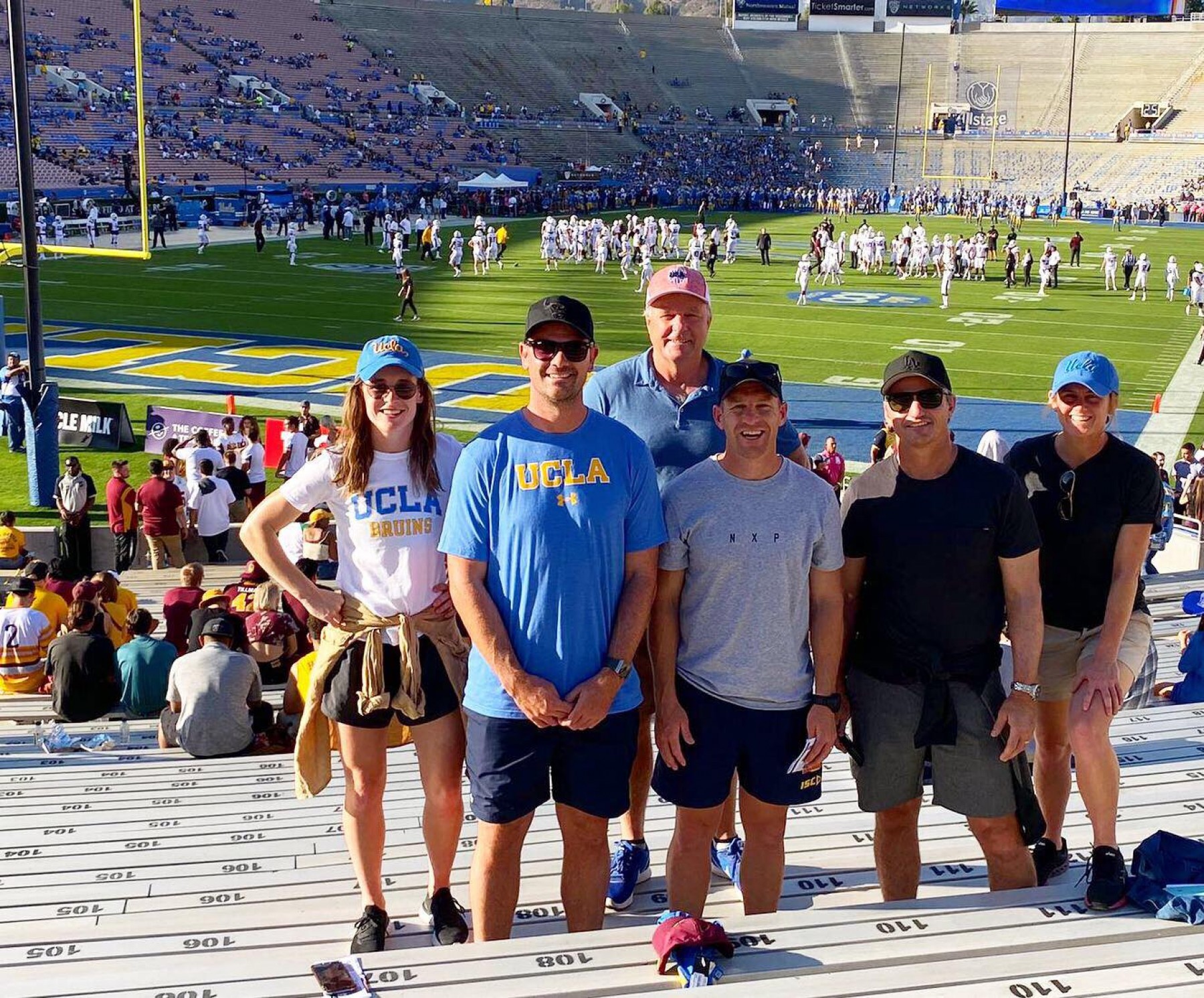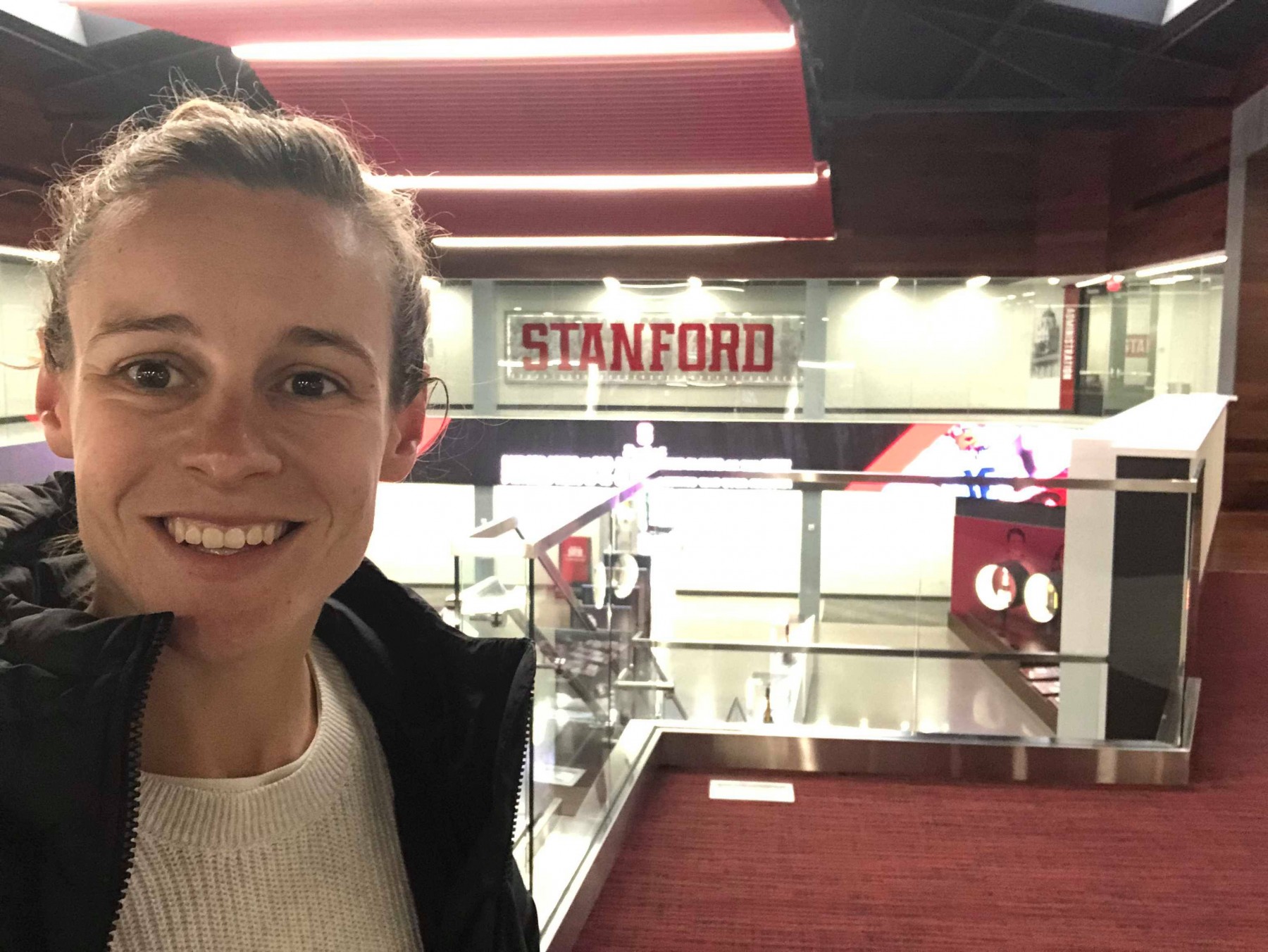GIANTS AFL Women’s captain and NEAFL development coach Alicia Eva recently returned from a study tour to the United States after being awarded the inaugural AFL Coaches Association & Lucky Chicken Eggs Coaching Pathway Scholarship.
Eva reflects on her learnings from the tour that took her across the U.S.
The 2019 season has been a big one for me. Going from an AFLW playing season, followed by my first year working within an AFL coaching system as development coach for the GIANTS’ NEAFL side.
Although it has come and gone and I’m now already back into AFLW pre-season ahead of the 2020 season, it would be remiss of me to not stop and take stock of what has been a year full or learnings, new mentors and new experiences.
At the beginning of the season, I was lucky enough to be awarded the inaugural AFL Coaches Association & Lucky Chicken Eggs Coaching Pathway Scholarship, an initiative of the AFLCA to further develop aspiring coaches currently still playing in the AFLW competition.
The scholarship provided me with three major experiences: a position in the “Next Coach” Program (aimed at upskilling AFL players exiting the system and moving into coaching role) in season 2020, 12 months of mentoring by premiership player and coach, and current Essendon head coach John Worsfold and a fully funded place in a study tour to the United States.
In the last two months, I have witnessed football at its absolute best and football when it doesn’t go to plan. Riding the highs of the preliminary final, to experiencing the lull of the quiet changeroom after a disappointing fall at the last hurdle in September.
This was immediately followed by the commencement of my Level 3 accreditation and then a 15-hour flight to Los Angeles to begin my study tour. The timing of this tour could not have been more perfect to consolidate my learnings from the year gone by. It affirmed that there are things that I am doing well from a coaching perspective, but it also prompted thoughts around how I could do things better.
The travelling party included coaches from both the AFL and the NRL. The Aussie rules contingent included Geelong AFLW assistant coach Natalie Wood, Adelaide development coach Paul Thomas, and long time North Melbourne assistant coach Darren Crocker.

From the NRL, Penrith Panthers head coach and NRL legend Ivan Cleary and his protégé assistant Cameron Ciraldo. Whilst the list of world class coaches we met across the course of the eight day tour was extensive, it was no surprise that a number of my key takeaways (or “golden nuggets” as coined by tour leader Ron Watt) were derived from conversations had whilst sitting in stagnant LA traffic.
The eight-day tour was spent mostly across two major cities; Los Angeles and San Fransisco. On the agenda in LA, we visited Loyola Marymount University, University of California Los Angeles (UCLA) and the Los Angeles County Fire Department (who we were extremely grateful to meet with given the wildfires in LA city during our stay).
Whilst in LA, we also met with a number of high performance managers, directors and coaches; namely Michelle De Highden (Gymnastics Australia- National Elite Coach Manager), Cameron Kiosoglous (Australian Olympic rower and now US National Team Rowing Coach), Mike Dunlap (LMU’s Mens Basketball Coach and former NBA coach) and last but certainly not least, US Olympic Teams High Performance Director John Crawley.
In San Francisco, the pace slowed a little from the bustling LA highways but the learning opportunities certainly did not. Here, we visited St. Mary’s University (the small but famous college stomping grounds of Aussie Basketball stars Patty Mills and Matthew Dellavedova) and Stanford University. Of all the colleges we visited, it was Stanford that stole my coaching heart.
Was it the shiny bright lights of the Athletic Department Hall of Fame? Was it the Nike sponsored apparel? Was it the fact that Stanford alone produced 15 Olympic Gold medallists (27 medals in total) in Rio 2016? No… it was that they were incredibly generous with their time, sharing their knowledge and opening up their doors to make our two days there the most insightful and enjoyable.

The recurring themes we discussed across the study tour could be split into three general categories. Firstly, culture and the ideal team environment, which included conversations around the ideas of “talent vs character”, athlete entitlement and the importance of relationship building to ensure effective team system. The second theme was centered around the technical aspects of coaching, from meticulous training plans, avenues for player feedback, learning environments and the actual on field component of drills and teaching technique. The majority of these learnings and observations came from St. Mary’s University and Stanford in San Francisco, who both opened their doors into their high-performance college sporting programs and allowed real time access to coaches and teams whilst on the job.
The third theme that was most apparent across all organisations we visited and individuals we spoke to was that of leadership and communication. Two very broad terms with ranging ideas as to what constitutes the best form of both, however very clear that the successful functioning of any team is dependant upon them.
Our visit to the LA County Fire Department Air Operations Base was perhaps the best example of this. Here, we were hosted by the Assistant Chief Derek Alkonis, who spoke about the importance of clear lines of communication and the necessity for all neighbouring units in his field to be communicating on the same wavelength (not just metaphorically, but literally in regards to radio networks) in order to succeed. He explained the “chain of command” in relation to leadership and decision making under pressure and again he reiterated the importance of training for pressured situations, so they are prepared to face them when they do happen.
Dealing with results far greater than a win or loss on a scoreboard, the phrase “you don’t rise to the level, you fall back to the level of training” could not have been more apparent within the LA County Fire Department and it is something that has stuck with me, along with that magical word I love - “perspective”.
As I reflect, the tour provided me with many affirmations and many new ways of thinking that I wish to apply in the season ahead. It affirmed to me that we as an AFL industry already get a lot right (and even do things better) when it comes to coaching elite athletes, utilising the most up to date technology and providing them with am amazing platform from which they can launch from.
It re-affirmed to me what I already knew- that relationships and clear communication is key to success, but also opened my eyes up to knew ways of building and perfecting both.
This ultimately leads to the biggest takeaway for me personally, which was something Mike Dunlap said: “a perfectionist needs to sit in their misery a bit, you can’t just go and be great”.
As a young coach balancing a playing and coaching career simultaneously, 2019 has been a year of wanting to do everything perfectly, which at times has been to my own detriment.
What I have learnt is that a good coach is someone who is a good planner, a good communicator, can create the right environment for success and put together a list of the right people. I don’t need to be all of that yet.
To use Mike’s words again, I simply just need to “focus on running the race and not winning it”. Where that takes me, time will tell, but like this US trip has shown me, I will learn a lot along the way.